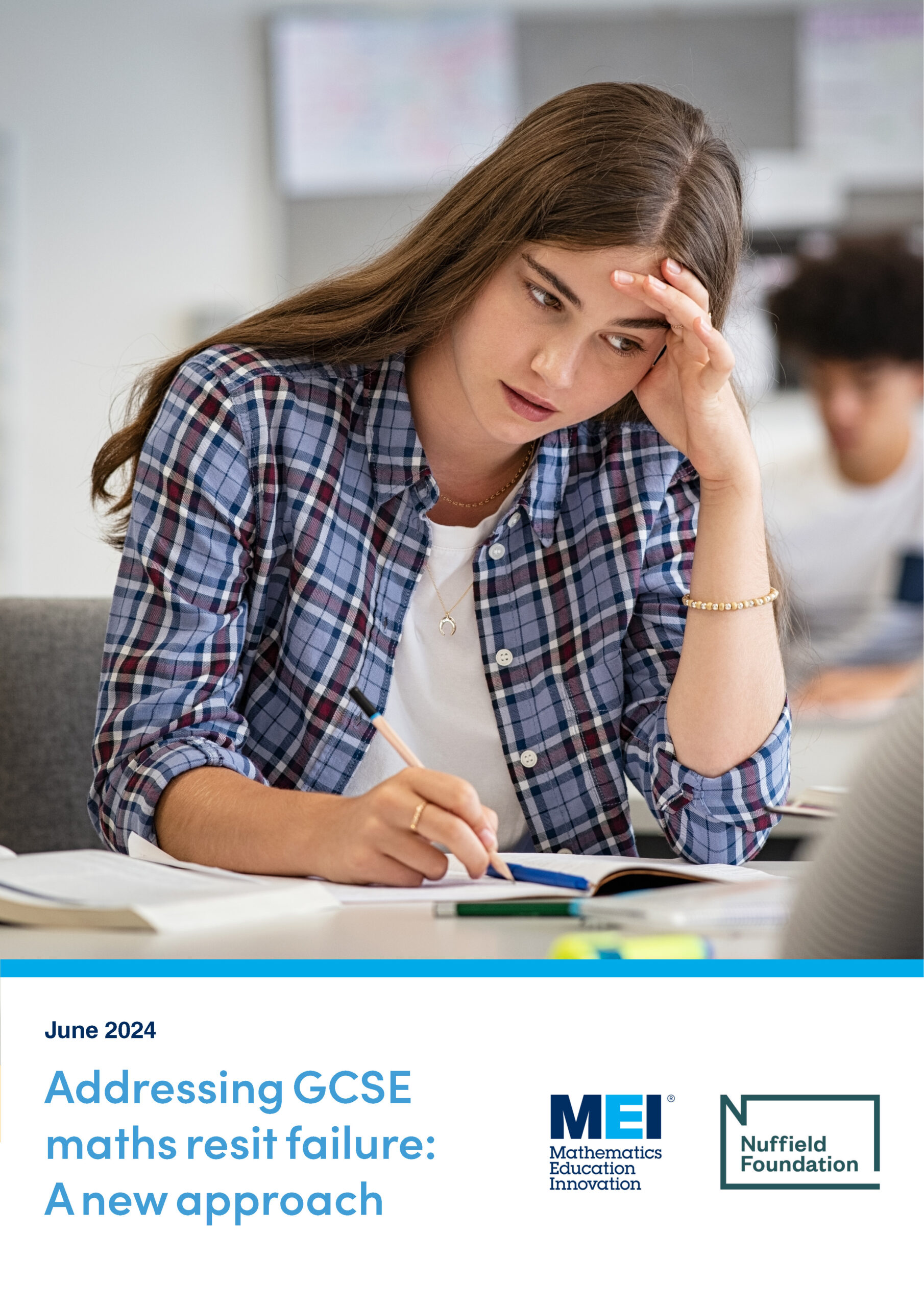Post-16 GCSE Mathematics
English and maths GCSEs are fundamental to young people’s prospects, yet just one quarter of students without a standard pass in GCSE maths at age 16 go on to achieve the qualification by age 19. Large numbers of students capable of achieving GCSE maths by age 19 are failing to achieve the qualification, with education gaps widening as a result.
Addressing GCSE maths resit failure: A new approach
MEI believes that there should be a revised GCSE maths qualification for post-16 students, to improve success rates and better prepare young people with the maths they need in work and life.
We make the case for a rigorous qualification better suited to the needs of resit students which:
- Reflects the numeracy, quantitative and mathematical skills needed for work and life – a subset of GCSE foundation tier, with additions such as financial applications and use of spreadsheets.
- Is of an equivalent standard to GCSE and incorporates the ‘GCSE’ name to ensure it is understood clearly by stakeholders including employers and students.
- Has a ‘stepping-stone’ assessment which can be taken before the final two papers to assess essential skills – passing this element could be a prerequisite for entering the final assessment and would support progress by providing diagnostic information.
- Is limited to grades 1 to 5 in the same way as the foundation tier taken by nearly all resit students.
Taking these proposals forward requires government support for further development and piloting, with exam board and Ofqual involvement. Ultimately, we argue for a change to the condition of funding for resit students to include the new qualification.
A new maths GCSE curriculum for post-16 resit students
In 2019, the Nuffield Foundation funded MEI to develop a new maths GCSE curriculum to establish the principle of an alternative approach. MEI conducted a range of research and consulted experts and stakeholders to inform the design of a potential revised qualification.
In 2020 we published the draft curriculum, sample assessments and sample teaching resources. Project outputs are published here.

This work was funded by the Nuffield Foundation


